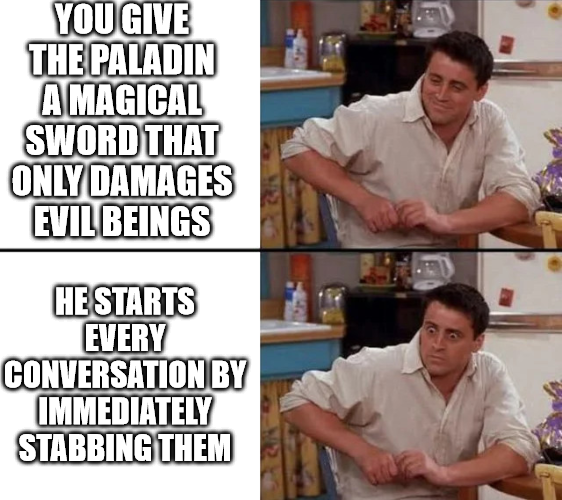this post was submitted on 16 Oct 2023
934 points (98.7% liked)
RPGMemes
12169 readers
261 users here now
Humor, jokes, memes about TTRPGs
founded 2 years ago
MODERATORS
you are viewing a single comment's thread
view the rest of the comments
view the rest of the comments

Situations like this give me the inclination to treat D&D Good™ and Evil™ as physical properties rather than moral tendencies. D&D Good™ that is a little too eager to murder beings labeled as Evil™ falls short of what I would consider good. If someone used such power to kill someone who is a pathological liar and petty thief, that wouldn't seem good to me even if that person could be classified as Evil™ as the system defines it.
Then again while to me such act seems evil, I don't think I could call the caster Evil™ because D&D explicitly endorses killing Evil™ creatures as a Good™ act. Since the 1st edition, the purest paragon of Good™ that is the Paladin wields a weapon to kill.
5th edition has done it better with the addition of "unaligned" to the mix, IMO. In order to have an alignment - even a neutral one - you need to explicitly dedicate yourself to that alignment, or be supernaturally bound to it such as with angels and demons. I would rule that these spells don't affect the unaligned.
It is definitely more convenient for players, especially now that they dropped class alignment requirements, but there is so much worldbuilding tied to Good and Evil and such, it feels a little strange to treat it like something most characters ignore.